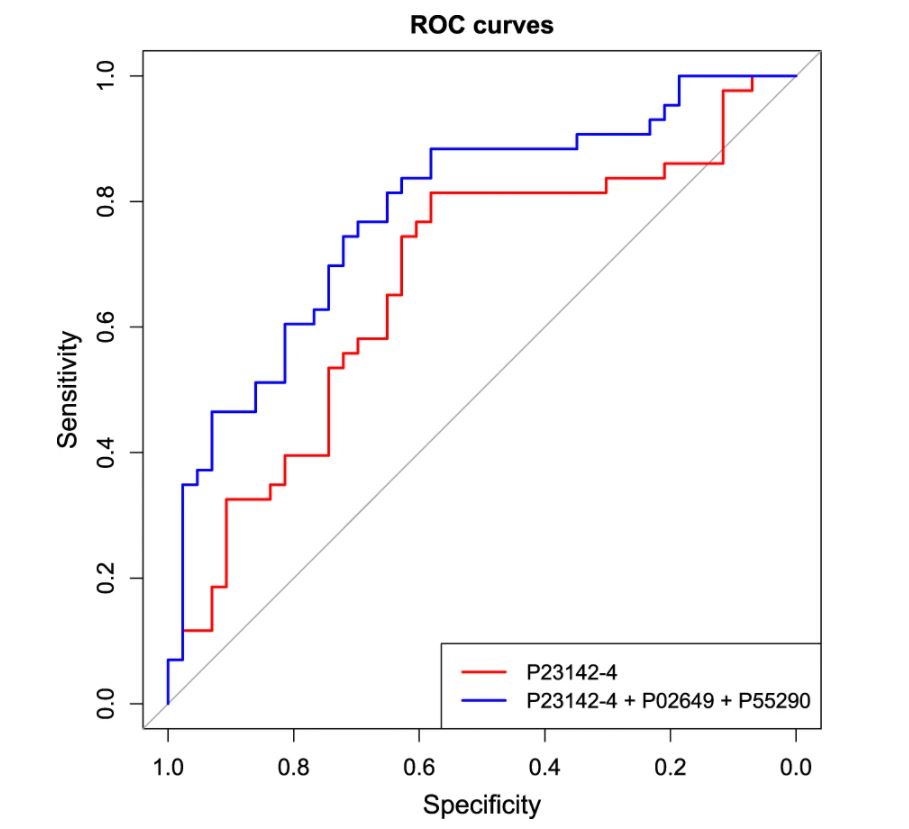Serum Proteomics Atherosclerosis
Atherosclerotic cardiovascular diseases are the major causes of mortality and morbidity in developed world. Thickening of the carotid arterial wall (plaque formation) are indicative of active atherosclerotic process. Myocardial infarction and stroke are the clinical events associated with an acute rupture of a critically located atherosclerotic plaque. Currently, ultrasonic assessment of carotid artery intima media thickness is used as a pre-clinical marker of the disease process. Nevertheless, atherosclerotic process may remain asymptomatic for several decades and whether thickening of intima-media layer of carotid artery and carotid plaque represents two different phenotypes or single traits of disease process is still unclear.
To gain insights into the pathophysiology of pre-clinical atherosclerosis and identify novel biomarkers, we conducted the serum proteomics measurements on the unique sample set of participants recruited in The Cardiovascular Risk in Young Finns Study. We performed label free quantitative MS analysis of serum samples obtained from the subjects in whom early signs of plaques were discerned together with matched controls. The serum samples were immunodepleted to remove high abundant proteins prior to LC-MS/MS analysis.
The profiling results indicated differential abundances in a set of proteins. Furthermore, selected reaction monitoring mass spectrometry analysis were performed on undepleted serum samples to verify the observed differences. Finally, machine learning analysis identified a panel of three proteins P23142-4 (Fibulin 1 proteoform C), P02649 (Apolipoprotein E) and P55290 (Cadherin-13) which segregated the cases from controls with best discrimination (an area under receiver-operating characteristic curve (AUROC) value of 0.79.).
 More details about the data analysis can be found here.
More details about the data analysis can be found here.